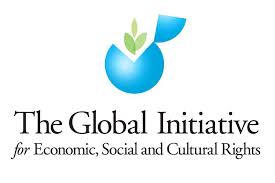Global Initiative for Economic, Social and Cultural Rights
Acronym
GI-ESCR
Non Governmental organization
Location
Rue de Varembe 1
CH-1211 Geneva 20 CIC
Geneva
Geneva
Switzerland
Postal address
P.O. Box 16
Working languages
inglês
The mission of the Global Initiative is to:
- Contribute to networks of human rights, women’s rights, environmental and development organizations and agencies to advance the sustainable enjoyment of economic, social and cultural rights at both national and international levels.
- Support and engage advocates, social movements and grassroots communities at national and local levels to more effectively claim and enforce economic, social and cultural rights, including by engaging international mechanisms for local impact.
- Provide innovative tools to policy makers, development actors and others on the practical implementation of economic, social and cultural rights.
- Strengthen the international human rights framework through creative standard setting, including jurisprudence, so that all people, and in particular marginalized individuals and groups, are able to fully enjoy their economic, social and cultural rights without discrimination and on the basis of equality.
- Enforce economic, social and cultural rights at international, regional and national mechanisms and seek remedies for violations of these rights, with a focus on creating beneficial jurisprudence aimed at transformative change.
Members:
Resources
Displaying 1 - 1 of 1Using CEDAW to Secure Women’s Land and Property Rights
Reports & Research
Maio, 2015
África
The purpose of the Guide is to provide advocacy information, advice and tools to those wishing to use the Convention on the Elimination of All Forms of Discrimination against Women (CEDAW) and its Optional Protocol to secure the land and property rights of women. It is directed at NGOs and advocates working on these specific issues. Includes overview of CEDAW and key actors, how can NGOs use and engage with CEDAW review processes?, complaints, themes and general recommendations, additional resources.


